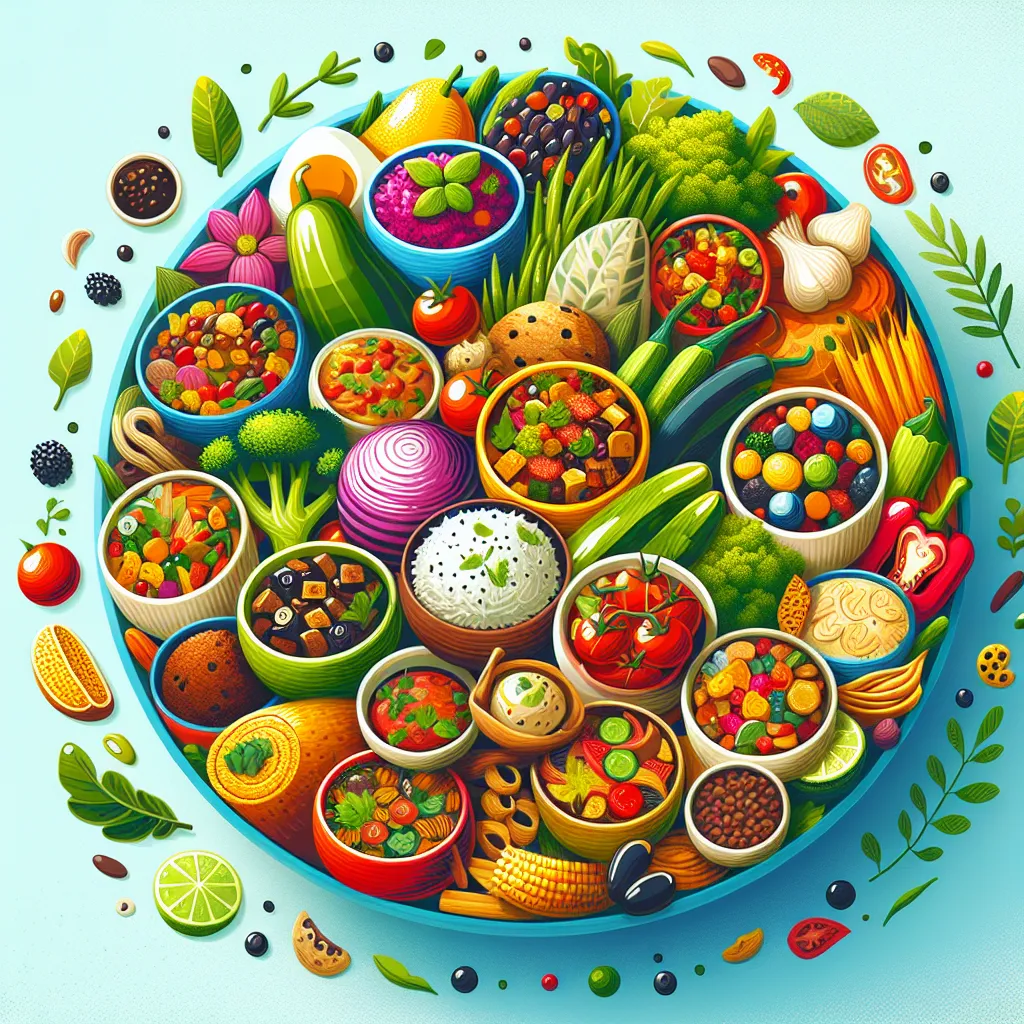Embracing Vegetarianism: A Journey to Health and Variety
Embracing a vegetarian lifestyle is not just a dietary choice, but a journey towards health and culinary variety. Vegetarianism offers a diverse range of health benefits, including lower risks of heart disease, high blood pressure, and certain types of cancer. By exploring the rich diversity of vegetarian meals, individuals can take advantage of an abundance of vitamins, minerals, and nutrients that are often lacking in a meat-centric diet.
One of the key advantages of embracing vegetarianism is the opportunity to discover new and exciting flavors from a wide array of fruits, vegetables, grains, legumes, and plant-based proteins. From the savory umami of roasted portobello mushrooms to the delicate sweetness of a mango and avocado salad, vegetarian cuisine showcases the bountiful flavors and textures that nature has to offer. By experimenting with different ingredients and cooking techniques, individuals can elevate their culinary experiences and expand their palate in ways they may not have thought possible.
Furthermore, following a vegetarian diet encourages individuals to explore global cuisines, such as the aromatic spices of Indian curries, the hearty simplicity of Mediterranean mezze platters, or the vibrant freshness of Japanese vegetable sushi. This culinary exploration not only adds excitement to meal times but also allows individuals to appreciate and respect the traditions and food cultures of various communities around the world.
In addition to the nutritional and culinary benefits, embracing vegetarianism also contributes to environmental sustainability. Reduced reliance on animal products leads to lower carbon emissions, conservation of water resources, and preservation of natural habitats. By making mindful food choices, individuals can actively participate in supporting a more sustainable and ethical food system.
In conclusion, embracing vegetarianism is a holistic journey that promotes both personal health and culinary variety. By exploring the diverse range of vegetarian meals, individuals can enjoy an abundance of flavors, expand their cultural awareness, and contribute to a more sustainable planet – all while nurturing their own well-being.
Culinary Adventures: Global Influences on Vegetarian Cuisine
Exploring the diversity of vegetarian meals opens up a world of culinary adventures influenced by global flavors and traditions. From the rich spices of India to the fresh Mediterranean ingredients, vegetarian cuisine reflects the vibrant tapestry of cultures around the world.
One of the most influential cuisines on vegetarian cooking is Indian cuisine, which is renowned for its extensive array of vegetarian dishes. The use of aromatic spices like cumin, turmeric, and coriander creates a depth of flavors that are unparalleled. Dishes like dal (lentil stew), paneer tikka (grilled Indian cheese), and vegetable biryani showcase the rich and varied traditions of Indian vegetarian cooking.
Mediterranean cuisine also plays a significant role in shaping vegetarian meals with its emphasis on fresh vegetables, olive oil, and herbs. The Greek mezze, which includes dishes like dolmades (stuffed grape leaves) and spanakopita (spinach pie), exemplify the wholesome and flavorful nature of Mediterranean vegetarian fare.
Furthermore, the influence of East Asian cuisine, with its emphasis on tofu, fermented products, and umami-rich ingredients like soy sauce and miso, has greatly expanded the variety of vegetarian dishes available. Japanese vegetarian sushi, Chinese braised tofu, and Korean bibimbap offer a unique and satisfying dining experience for both vegetarians and non-vegetarians alike.
Exploring the global influences on vegetarian cuisine provides a rich tapestry of flavors and culinary traditions that celebrate the diversity of plant-based cooking. From the bold spices of India to the fresh simplicity of the Mediterranean and the umami-rich flavors of East Asia, vegetarian meals offer a world of exciting culinary possibilities.
Nutritional Balance: Crafting a Well-Rounded Vegetarian Diet
When it comes to vegetarian meals, ensuring a well-rounded and nutritionally balanced diet is essential. Crafting a diverse and nutrient-rich vegetarian diet involves careful consideration of various food groups to meet the body’s needs for essential vitamins, minerals, and macronutrients.
Plant-based sources of protein such as legumes, tofu, tempeh, and quinoa are crucial for muscle repair and growth, as well as overall body function. Including a variety of nuts, seeds, and legumes in meals can provide essential amino acids necessary for the body’s protein requirements.
Fruits and vegetables are a cornerstone of vegetarian diets, providing an array of vitamins, minerals, and antioxidants. Dark leafy greens like spinach and kale, as well as vibrant fruits such as berries and citrus fruits, are valuable sources of essential nutrients like vitamin C, vitamin K, and folate.
To ensure an adequate intake of calcium and vitamin D, which are vital for bone health, incorporating fortified plant-based milk, tofu, and leafy greens into meals can be beneficial. Additionally, consuming adequate quantities of iron from sources such as lentils, chickpeas, and fortified cereals is important for vegetarians, as plant-based iron sources may be less readily absorbed by the body compared to animal-based sources.
Omega-3 fatty acids, crucial for heart and brain health, can be obtained from sources like flaxseeds, chia seeds, and walnuts. Including these in a vegetarian diet is important for overall well-being.
By incorporating a wide array of plant-based foods and being mindful of the nutritional components of each meal, individuals can create a well-rounded vegetarian diet that meets their nutritional needs. Paying attention to the variety and quality of food choices can ensure that a vegetarian diet is not only enjoyable but also nutritionally balanced.
The Art of Vegetarian Cooking: Innovating with Fresh Ingredients
Exploring the diversity of vegetarian meals opens up a world of culinary possibilities, inviting us to embrace a variety of fresh and vibrant ingredients. The art of vegetarian cooking lies in the innovative use of these ingredients to create flavorful and satisfying dishes. By harnessing the natural goodness of vegetables, fruits, nuts, legumes, and grains, chefs and home cooks alike can craft an array of delicious and nutritious meals.
One of the key elements of vegetarian cooking is the emphasis on utilizing fresh, seasonal produce. This practice not only ensures that dishes are packed with essential nutrients, but also celebrates the ever-changing tapestry of flavors and textures that nature provides. By staying attuned to the ebb and flow of the seasons, vegetarian cooks can constantly redefine their culinary repertoire, infusing their creations with an exciting array of tastes and colors.
Furthermore, the vegetarian kitchen is a fertile ground for culinary innovation, encouraging cooks to experiment with new ingredients and cooking techniques. From creating hearty grain bowls bursting with wholesome goodness to crafting plant-based versions of classic dishes, the world of vegetarian cooking is filled with opportunities to push the boundaries of traditional culinary norms.
Ultimately, the art of vegetarian cooking is a celebration of the bountiful gifts that nature offers, inviting us to explore, create, and savor an endless variety of delicious and nutritious meals.




